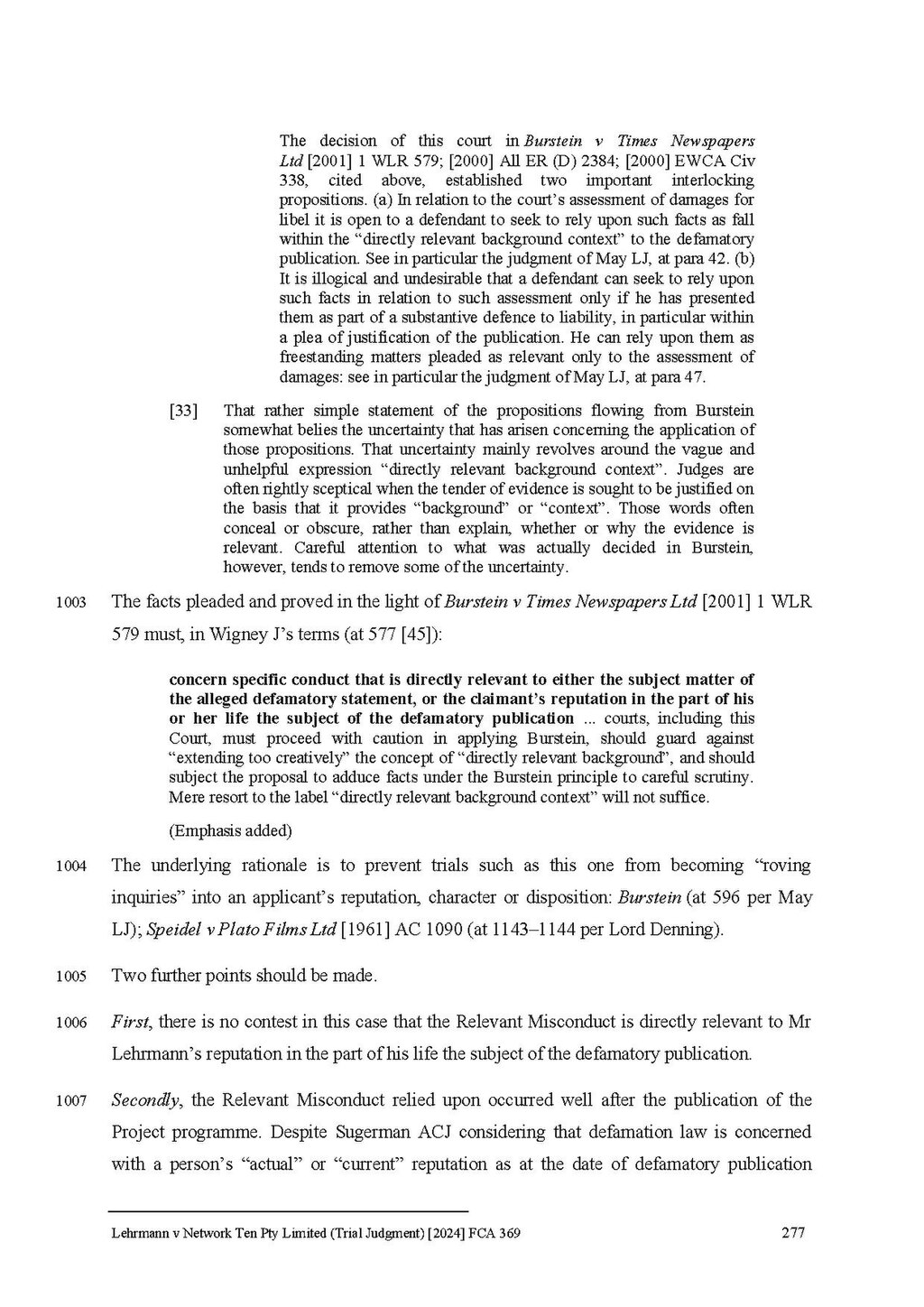The decision of this court in Burstein v Times Newspapers Ltd [2001] 1 WLR 579; [2000] All ER (D) 2384; [2000] EWCA Civ 338, cited above, established two important interlocking propositions. (a) In relation to the court's assessment of damages for libel it is open to a defendant to seek to rely upon such facts as fall within the "directly relevant background context" to the defamatory publication. See in particular the judgment of May LJ, at para 42. (b) It is illogical and undesirable that a defendant can seek to rely upon such facts in relation to such assessment only if he has presented them as part of a substantive defence to liability, in particular within a plea of justification of the publication. He can rely upon them as freestanding matters pleaded as relevant only to the assessment of damages: see in particular the judgment of May LJ, at para 47.
[33] That rather simple statement of the propositions flowing from Burstein somewhat belies the uncertainty that has arisen concerning the application of those propositions. That uncertainty mainly revolves around the vague and unhelpful expression "directly relevant background context". Judges are often rightly sceptical when the tender of evidence is sought to be justified on the basis that it provides "background" or "context". Those words often conceal or obscure, rather than explain, whether or why the evidence is relevant. Careful attention to what was actually decided in Burstein, however, tends to remove some of the uncertainty.
1003 The facts pleaded and proved in the light of Burstein v Times Newspapers Ltd [2001] 1 WLR 579 must, in Wigney J's terms (at 577 [45]):
concern specific conduct that is directly relevant to either the subject matter of the alleged defamatory statement, or the claimant's reputation in the part of his or her life the subject of the defamatory publication … courts, including this Court, must proceed with caution in applying Burstein, should guard against "extending too creatively" the concept of "directly relevant background", and should subject the proposal to adduce facts under the Burstein principle to careful scrutiny. Mere resort to the label "directly relevant background context" will not suffice.
(Emphasis added)
1004 The underlying rationale is to prevent trials such as this one from becoming "roving inquiries" into an applicant's reputation, character or disposition: Burstein (at 596 per May LJ); Speidel v Plato Films Ltd [1961] AC 1090 (at 1143–1144 per Lord Denning).
1005 Two further points should be made.
1006 First, there is no contest in this case that the Relevant Misconduct is directly relevant to Mr Lehrmann's reputation in the part of his life the subject of the defamatory publication.
1007 Secondly, the Relevant Misconduct relied upon occurred well after the publication of the Project programme. Despite Sugerman ACJ considering that defamation law is concerned with a person's "actual" or "current" reputation as at the date of defamatory publication
